Recently, a friend asked me to buy a movie watching equipment for the family. I don't usually watch TV at ordinary times. I occasionally go home at night to go home. On weekends, my friends can come and watch movies together. The main effect is shocking. I don't know. How to choose. The words “shocking the effect†literally poached my Tianling cover. What kind of effect is called shock? What kind of equipment can achieve the effect of shock?
Although the price of smart TVs is getting cheaper and cheaper, and the choice of products is increasing, the current situation facing the market is that the time for consumers to watch movies at home is getting shorter and shorter, the portable devices with small screens, and fragmented views. Shadow time has gradually become the habit of consumers. It's not that consumers will like to watch movies on such small screen devices. In most cases, it is time that it is not allowed. It's rare to have a whole period of time to watch movies, even if many people choose to go to the cinema. Some people think that the smart TV placed at home is not much better than the iPad in the hands of the audience, even if it is 4K TV. Just like the friend who recommended me to watch video equipment above, he just felt that the TV at home was not good.
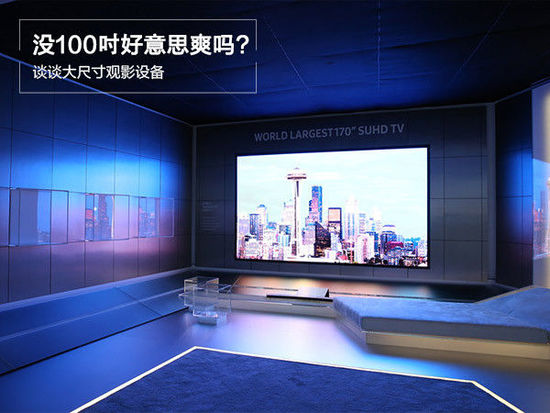
Obviously 4K TV is already very clear. Why is it bad? The reason is also very simple, the picture is not big enough. The effect of shock must be inseparable from the huge screen. Don't worry about the concept that the best viewing distance is equal to the size of the screen, etc. Don't worry that your house is not big enough and not suitable for too much TV. Under the shock of the large screen, these are trivial things. .
Think about the color, brightness, contrast, and dynamic effects of the screen when you are watching movies in the cinema? In fact, most people have long been immersed in the sense of presence brought by the oversized screen. At this time, it is only the plot of the movie that attracts your attention. The big screen allows you to enjoy this state of affairs.
Projection is no longer a high-end plaything
The simplest way to get a big screen is projection. Early projections were expensive, bulbs used ultra-high-pressure mercury lamps, and life spans were short, complicated cables and large bodies were also a problem. The projection at that time has always been a luxury in the eyes of ordinary people. However, with the maturity of projection technology, the life of the projector lamp has been greatly extended, and the price of the projector has also been greatly reduced. In particular, Internet companies have broken into the projection industry in recent years, breaking the pricing contract between traditional projector manufacturers, further lowering the price of the projector.
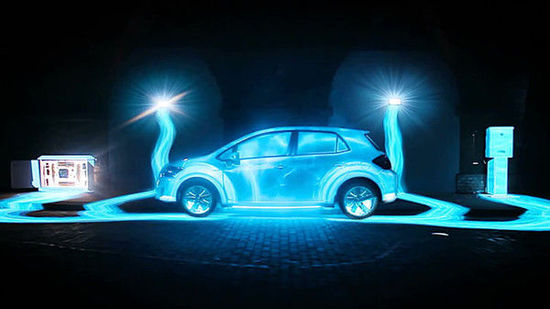
Currently projection technology is mainly divided into three categories. Different projection technologies have different effects and prices. We only do some simple understanding.
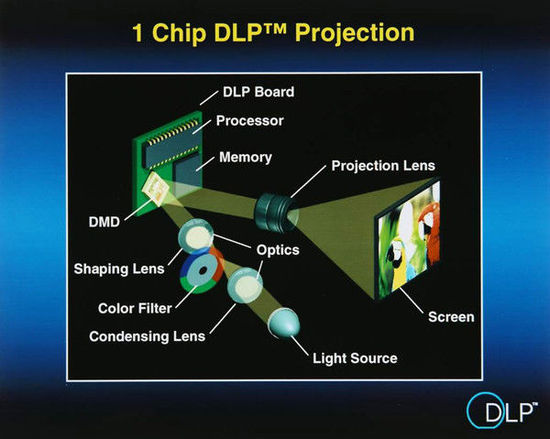
DLP projection technology
DLP projection technology. A new type of projection technology developed by Texas Instruments has almost occupied all the entry-level home projection markets. Brightness can reach 1000-2000 lumens. Due to the motion of the color wheel and the DMD chip, the single-chip DLP projection is slightly inferior in color performance.
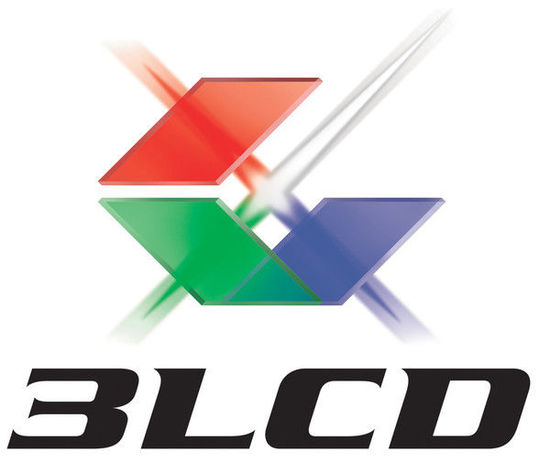
3LCD projection technology
3LCD projection technology. Very mature projection technology, this technology is basically owned by Epson and Sony. Projected images are sharper and more accurate in color. The disadvantage is that it can not be sealed optical design, easy to accumulate ash. And the contrast is not too high.
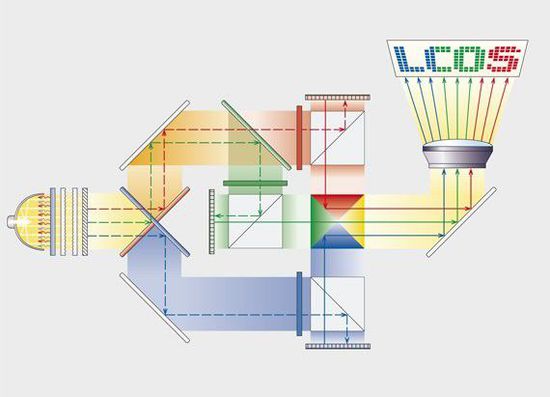
LCOS projection technology
LCOS projection technology. Rising star. The production process is complicated and the cost is very high. However, color saturation, contrast, brightness, resolution, etc. all perform very well. expensive.
There are two main types of home pico projectors that are currently on the market. They are LCOS and DLP technologies. LED micro-projectors, especially with DLP technology, are more popular and the technology is very mature. It can achieve higher brightness and the cost is not high. Home projectors such as Xiaoshuai Cinema, Extreme Rice, Nuts, Divine Painting, etc., have adopted this technology.
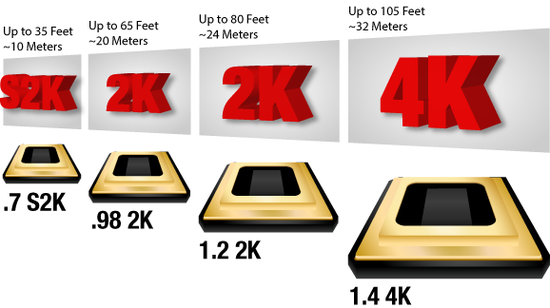
DLP 4K Ultra HD chip
However, the resolution is a hard flaw, so most Internet companies will not mention the resolution in the release of this kind of micro-projection, but said that support 4K video, support full HD playback and so on. It is understood that most of these projection resolutions are at the level of XGA or WXGA, which is what we often call 720P. A few support Full HD. The good news is that TI released the DLP 4K Ultra HD chip earlier this year, and I believe that home projectors will soon reach 4K.
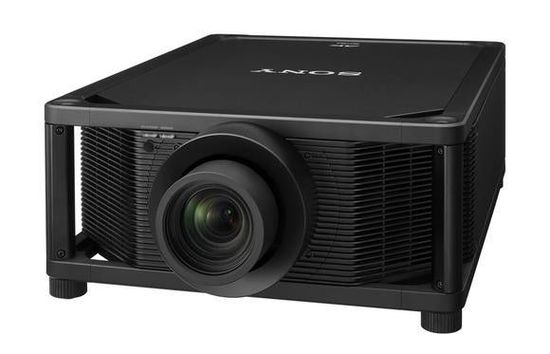
Sony Water Cool 4K Projector
Although the resolution of home projectors is a bit inferior to that of 4K TVs filled with Main Street, as mentioned above, when the brightness of the projections is high enough and the picture is large enough, you will forget the resolution colors. Of course, the brightness and definition of the DLP also limit the loss of the effect after it is oversized. After the projection resolution of the 720P exceeds 100 inches, the brightness will be slightly lower and the colors will also be lighter. If the clarity is higher, the brightness is higher, and your home wall is big enough, throwing 150 baht is not a problem.
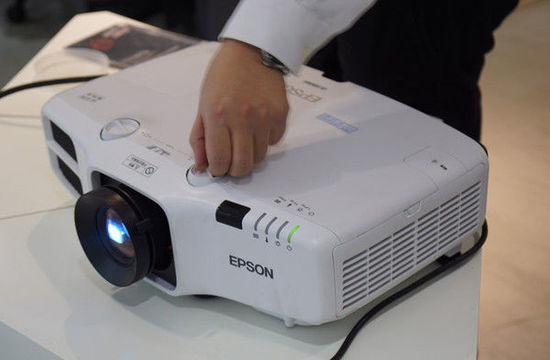
This kind of non-short-focus projection wants to get a huge projected area, and there is a problem that has to be said is that the projector is away from the wall. If you are renting a house, you must measure it with a ruler. The projection distance is: screen height X large F value X scale factor. Large F values ​​and proportional coefficients are generally described on the projector. In general, you want to project a 100-inch screen, and the ordinary projector needs about 3.1-3.7 meters from the wall.
With such a large projected area, it's best to watch 3D movies. You just need to go to Ma Yun's father to choose some shutter-style 3D glasses, and then prepare a better curtain, preferably a gray screen, if you Projected on a white wall or a white curtain, the black effect will be poor. However, if the original brightness of 900 lumens, after wearing 3D glasses will probably be reduced to 450 lumens, so at night to see the 3D blockbuster is the best choice.
Ultra-short focus small space projector artifact
In recent years, ultra-short-focus projectors have become a new artifact that rivals the television division, and are more like a subversive trend. Domestic and foreign manufacturers are increasing the market for ultra-short focal projector projections. This includes ultra-short focal laser televisions from domestic manufacturers such as Hisense, Konka, and Changhong. In particular, Hisense, which has laid out nine years of laser technology, has obtained a lot of technological breakthroughs.
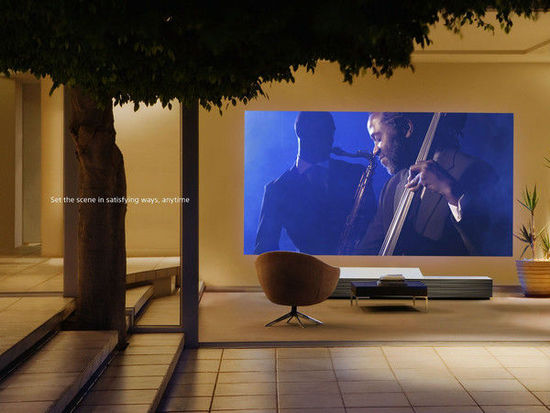
Sony ultrashort projection
Ultra-short-focus projection, as the name implies, requires a small distance from the projector, often only a projection distance of tens of centimeters, and can project a larger image in a shorter distance. The projector has a concept of the projection ratio, which is the ratio of the projection distance to the screen width. Generally, the smaller the projection ratio is, the shorter the distance of the screen with the same size is. If you have a limited space in your home, you can calculate the required distance based on the projection ratio on the projector.
The projection ratio of an ultra-short focal projection can be up to 0.6, which means that you can project 100 frames at a projection distance of 1.2 meters. The reflective ultra-short-focus projection can project 100 frames at a distance of 0.1-0.5 meters. In this case, the biggest advantage of this technology is that it saves space, especially if the rent is so expensive. If you want to buy a normal projector and you want to throw 100 baht, you still have to worry about the size of the room. At the same time, the scenes in the company office and school classrooms are also of great value.
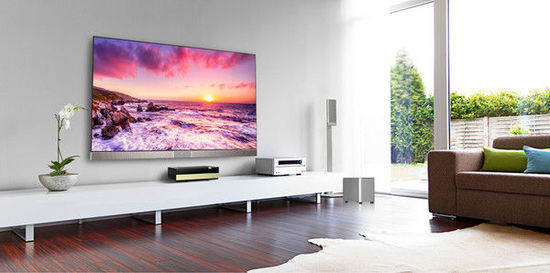
Hisense ultra-short focal laser television
Not only is the space required small, most ultra-short-focus projections today use a reflective design, and the light source uses lasers more. The blue laser source emits a laser beam. After the color wheel, the three-color light is projected onto the DMD chip for imaging. The light is then projected onto the mirror through an optical machine and an ultra-short focal lens. Finally, the mirror is irradiated to the screen and reflected by the screen to form a complete image. The image enters the human eye. The advantage of this is that the light that finally enters the human eye is very soft and healthier than LCD TVs. And laser light sources have higher brightness and longer life.
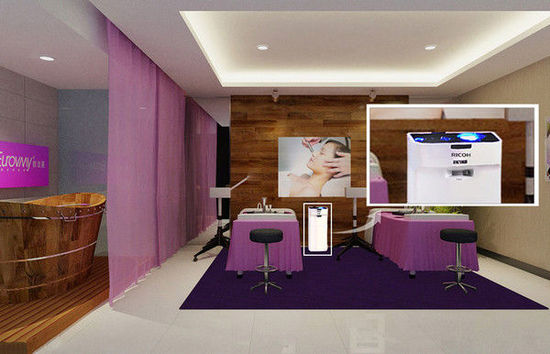
Ricoh ultra-short focal projection
Of course, ultra-short-focus projection is not a panacea. The most obvious short board is the distortion of the screen. The ultra-short focus and distortion are the dead ends of the shadow. In the actual display, the middle part of the display screen is generally relatively clear, and there are some blurs around the edges. As for the phenomenon of earlier brightness and color unevenness has been greatly improved, the current ultra-short focus technology using laser light source, has made a great breakthrough in color brightness. However, most of the screen resolution still stays at the level of Full HD.
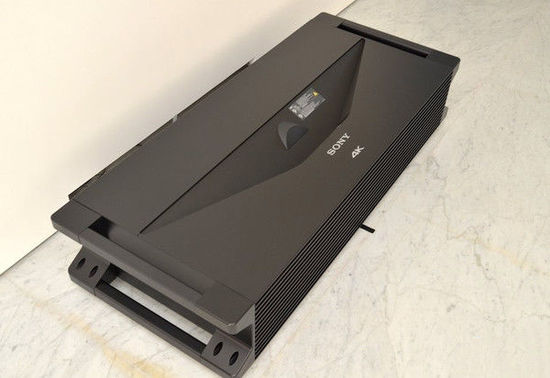
SXRD 4K ultra-short focus laser projector
At this year's CES show, Sony, Canon, Ricoh, LG, and Philips have all launched their own ultra-short-focus laser projectors. Hisense's laser TVs are also expected to release 4K-resolution laser-laser televisions in the first half of this year. Ultra-short-focus projection technology is gradually gaining popularity, positioning itself in the field of large-size display.
Large size LCD TVs are good for anything but expensive
If you are a fancier of quality, in addition to high-end projection, large-size LCD TVs should be the best choice. And this big size I think must be defined in more than 70 inches.
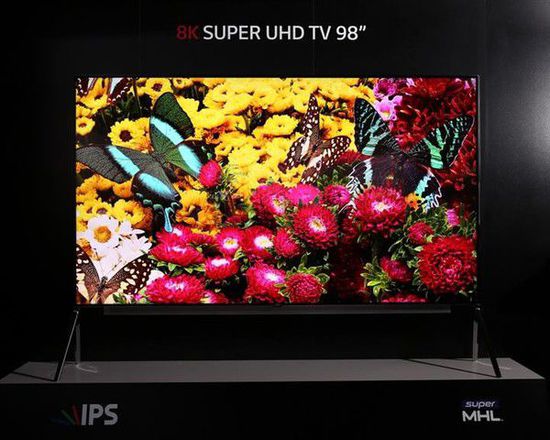
LG UH9800 98å‹8K TV
Today, LCD TVs should be the longest and most mature technology in display technology. In the resolution, color depth, dynamic response, color gamut, brightness range has a great breakthrough. The popularity of quantum dots over the past few years, as well as HDR overheated during this period, is a breakthrough in LCD TV display technology bottlenecks. The LCD TV is like an old-fashioned but intelligent old man. Almost every year, people have said that LCD has reached its peak, and it will be defeated by other display technologies. But LCD TVs are always enduring.
In addition to the huge vested interests of the mature LCD industry, LCD technology itself is undergoing many changes. At the same time, the emerging Internet market has also promoted the differentiation and reorganization of the existing market.
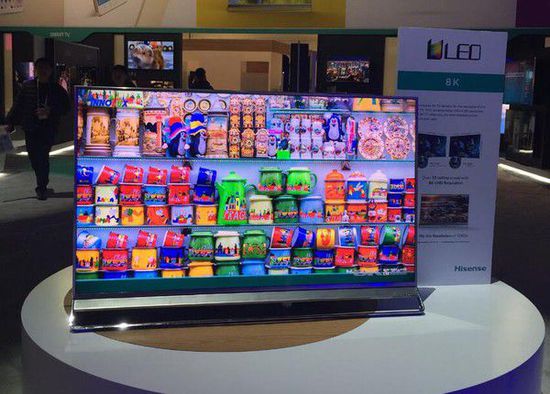
Hisense MU9800U 98å‹8K TV
Compared to the 100-inch and 150-inch screen size, the popular 55-inch screen of LCD TVs is much shabby. Although 4K has been blooming, the lack of a large screen is not satisfying. For the LCD TV to get a shocking effect, the 70-inch is indispensable. However, depending on the cost of the LCD panel, the 20-inch price may be more than double the price. It is estimated that an LCD TV of 85 inches will be prepared for 100,000 yuan. Take a look at this year's Sony flagship TV, the difference between 65 and 85 baht RMB.
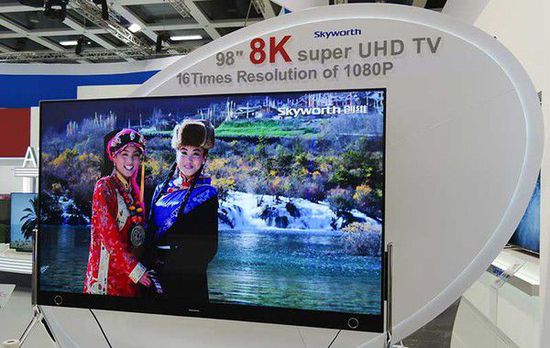
Skyworth 98†8K TV
In addition to large, LCD TVs can also have a higher resolution, 8K, 10K is not a problem, a higher color gamut coverage, like Sharp's "red, green, blue and yellow" new four-color technology has 116% NTSC color gamut coverage The scope, combined with the maturity of multi-zone backlighting technology, dual light guides also appeared in side-entry backlight TVs, and the brightness and dynamics of TVs have also made great progress.
At this year's CES show, almost every traditional TV manufacturer unveiled its own oversized 8K LCD TV, among which LG released the UH9800 with a 98-inch screen and 8K resolution; Hisense released the MU9800U with a 98-inch screen and 8K resolution; Skyworth introduced a 98-inch 8K TV, which is provided by LGD; Changhong also introduced the 98ZHQ2R, which also has a 98-inch screen and 8K resolution. 8K resolution can reach 16 times of 1080p.
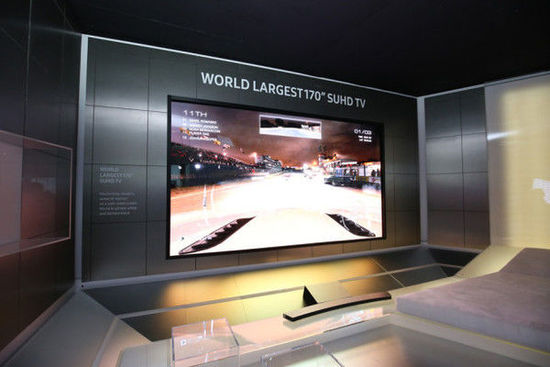
Samsung 170 inch SUHD TV
Samsung also made a big move to launch the world's largest 170-inch SUHD TV, with a length and width of 18.3 meters and 4.8 meters respectively. This size is really a shame for a bunch of projections. What is even more powerful is this modular display technology, which can support the free splicing of screens of different shapes and sizes, combining the consumer's lifestyle and viewing content into a completely customized television display.
In fact, as early as CES2012, Sharp had already launched the world's first 85†8K LCD TV. During IFA 2012, Panasonic displayed the first 145†8K plasma TV. The road to big screen television has already begun very early. This large screen with high resolution, in addition to a set of 7.1-channel sound system, completely worse than the cinema.
Internet companies create "big screen" across borders
If the industry oligopolies are unwilling to abandon the huge profits brought about by the original technology and patents and push forward technologies that will reduce huge profits, then Internet companies are the biggest impact on these oligopolists.

The big screen is not only something that traditional hardware vendors dare to do. The inherent integration and innovative nature of the Internet allows them to not waste any opportunity. Although Internet companies do not have the hardware capabilities to develop a large-screen product, they can use existing technologies to combine various digital resources such as music and video to match new business models to create new products with the most obvious differences. It is the low price of hardware and the charging of digital resources.
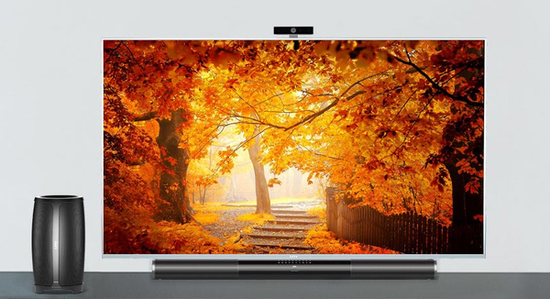
LeTV 70 Super TV
Like Internet TV manufacturers LeTV and a certain meter have launched a 70-inch large-size LCD TVs, the price is also controlled at about 10,000. LeTV also reduced the 65-inch LCD TV to the 6K price segment. It is also easy to enjoy the shock of the large screen.
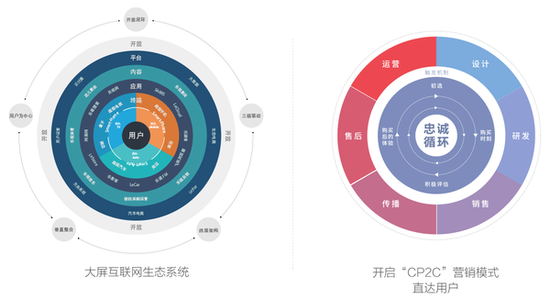
The ideal ecological empire for Internet TV manufacturers
In addition to large-screen LCD TVs, the new business model of smart hardware has also allowed projectors to go for free and low prices. Just as most Internet companies operate smart ecosystems and use content to subsidize hardware, domestic manufacturers have also begun to bring projectors into smart and access content platforms. Manufacturers like pole rice, nuts, etc. have all started this path.
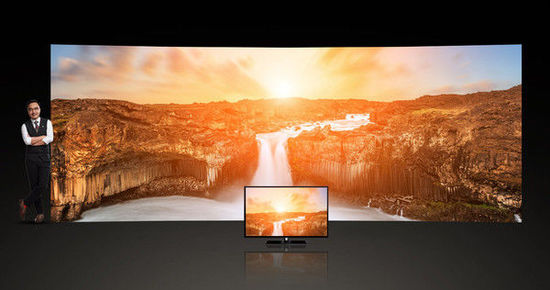
Smart projection
Through many explorations and trials and errors, in fact, smart TVs have given preliminary answers. In the absence of a certain amount of content and users, content subsidy hardware is a very difficult path, but it does not rule out these Internet companies gradually. The user's paying habits have been cultivated, and the stickiness between the product and the product has been increased in some ways. However, judging from the current actual situation, it is still not separated from the tone of domestic video websites. Most of these subsidies come from advertising costs. Such as boot ads, watching movies, television ads. It wouldn't be impossible if it were to continue to develop such advertisements in the middle of the movie.
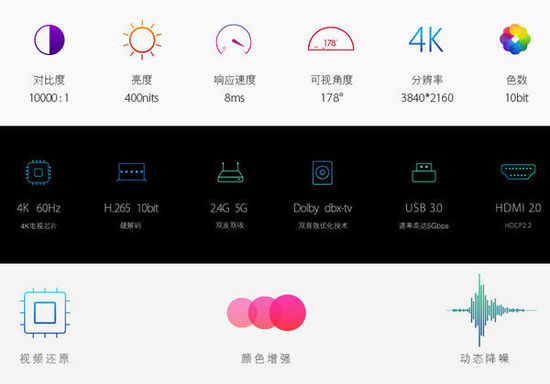
Internet TV got rid of the low-price and low-quality name
Of course, the “big screen†created by Internet companies has largely escaped the previous name of low-quality, low-quality, and cottages in terms of quality. Most large-screen smart TVs use mostly LGD or Sharp screens. The hardware also uses MStar's latest TV chips and high-specification memory combinations. Most of the smart projectors also use the DLP projection technology from Texas Instruments. The brightness and resolution are constantly improving.
Summary: Still returning to the very beginning, what should be the effect of a "shocking" viewing equipment? After such awkward analysis, the answer should be self-evident. If you are a renter, you are usually busy, and you mainly want to watch movies and play games at home on weekends. Then you can choose a smart projector. Its price is not expensive, 80-100 inch large size screen must be enough for your weekend pastime. If you are a user who has a slight requirement on the picture quality and picture size, and the housing space is not large, you can choose an ultra-short-focus projection, which has a relatively high cost performance in the same brightness and color performance. Most importantly, it is very space-saving. If you are very sophisticated and want to build your own private cinema, if the economic conditions are not bad, then a high-end projection or a large-size LCD TV must be no less.
If you are a home user and you are still in a tangled relationship, Xiao Bian suggests that you buy ordinary projections and normal-sized TVs. There is no contradiction or duplication between them. After all, even the best projections are easily affected by light. The projection still requires a specific environment. If you watch a news at home and put on the curtains and projections, it would be a waste. And for home users, TV can be used for decoration and has a certain decorative significance. Wait until you have a good time watching the movie and then pull up the curtains, turn off the light, turn on the projection and watch the movie. At least at this stage, no one can replace who, and they are very complementary.
TPS Flat Cable As Per AS/NZS 5000.2
Practical Choices in TPS Flat Cables for Everyday Electrical Work
Our section where we introduce "Tps Flat Cable" options that meet the standards of AS/NZS 5000.2. In this category, you'll find a variety of "Tps Flat Wires" and "Tps Flat Electrical Cables," all designed to perform reliably in many types of electrical setups.
"Tps Flat Cables" are made with a focus on practicality, combining PVC insulation with a strong thermoplastic cover. This design ensures safer use and long-term service, making these cables a go-to choice for different settings including homes, offices, and workshops.
Every cable in our range meets the strict requirements of AS/NZS 5000.2. We make sure of this by putting each "Twin flat cable" through thorough testing and quality control. This way, every "Tps Flat Cable" you use is up to the mark, giving you peace of mind for each job.
These cables are easy to work with, whether you're running them in view or out of sight. The flat shape and flexibility of the cables make them easy to lay out along walls, fit in tight spaces, and use without needing extra pipe work.
No matter whether you're working on a new build, fixing up an old place, or updating electrical systems, our "Tps Flat Wires" and "Tps Flat Electrical Cables" are made to last and do the job well. You can choose from various sizes and setups to match exactly what your project needs, ensuring a good fit and solid electrical connection.
From lights to sockets, our "Tps Flat Cables" are set up to give you safe and effective options for wiring tasks. Trust in our cables to handle day-to-day demands and keep performing over time.
Check out our collection of "Tps Flat Cables" today, where quality and performance are designed to meet the needs of modern electrical work. Try them out for yourself and see how they can improve your work projects.
AS/NZS 5000.2 approved eletric cable: TPS,building cable export to Australia, New Zealand, Fiji, Papua New Guinea and other Oceania market for more than 10 years, quality assured.
- Standard applied: AS/NZS 5000.2
- U0/U: 450/750V
- Certification: SAA
- fire resistance or Low smoking and Halogen free or other property can be available
Tps Flat Cable,Tps Flat Wires,Tps Flat Electrical Cable,Twin flat cable, twin active
Shenzhen Bendakang Cables Holding Co., Ltd , https://www.bdkcables.com